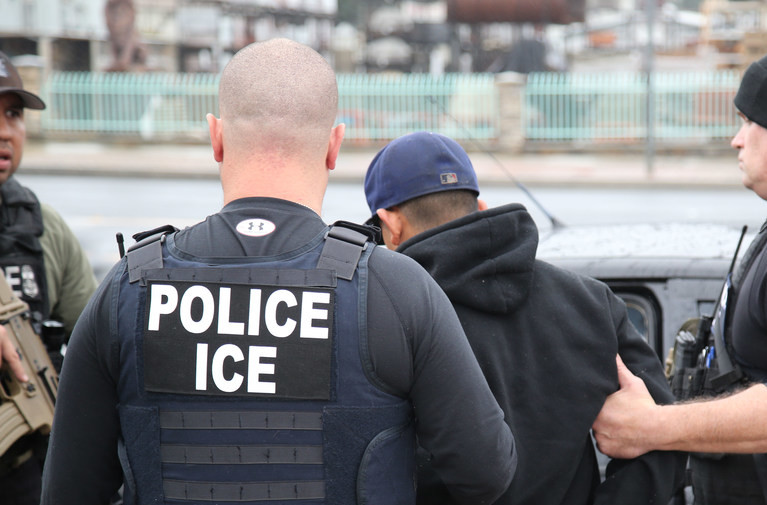The Trump administration’s immigration crackdown in Los Angeles, involving “roving” immigration raids, has reached the U.S. Supreme Court. On August 7, 2025, the administration filed an emergency appeal to lift a temporary restraining order (TRO) issued by U.S. District Judge Maame Ewusi-Mensah Frimpong on July 11, 2025. The TRO blocked Immigration and Customs Enforcement (ICE) from conducting stops and arrests in Los Angeles and eight other California counties based solely on factors like speaking Spanish, apparent race or ethnicity, working in certain jobs (e.g., construction or day labor), or being at specific locations like Home Depot parking lots or bus stops. Frimpong, a Biden appointee, cited “a mountain of evidence” that these tactics violated Fourth Amendment protections against unreasonable searches and seizures, noting that at least two U.S. citizens were swept up in the raids.
The administration’s appeal, led by Solicitor General D. John Sauer, argues that the TRO imposes a “straitjacket” on ICE, hindering federal immigration enforcement in an area with an estimated 2 million undocumented immigrants. Sauer contends that factors like language or occupation can “heighten the likelihood” of unlawful presence and should be permissible for establishing reasonable suspicion, even if not sufficient on their own. The appeal also claims the TRO defies Supreme Court precedent and improperly restricts enforcement across an entire region, citing a recent high court ruling against universal injunctions.
The case stems from a lawsuit by immigrant advocacy groups and Los Angeles, alleging racial profiling and unconstitutional tactics, such as masked agents in military-style gear conducting aggressive raids at public locations. The Ninth Circuit Court of Appeals upheld Frimpong’s order on August 1, 2025, rejecting the administration’s request to lift it and questioning why the government opposed an order preventing unconstitutional stops. Critics, including the ACLU, argue that recent ICE actions, like a “Trojan Horse” raid using a Penske truck at a Los Angeles Home Depot on August 6, 2025, may violate the TRO.
The Supreme Court’s handling of the appeal, filed on its emergency docket, could signal whether the justices view the TRO as an overreach by lower courts or a necessary check on unconstitutional enforcement. No oral arguments are expected, and the Court’s decision could come swiftly, given its recent tendency to side with the Trump administration in similar emergency appeals. The case reflects broader tensions between federal immigration authority, as affirmed in the 2012 Arizona v. United States ruling, and local resistance in sanctuary jurisdictions like Los Angeles, where officials argue such raids terrorize communities and undermine public safety.
